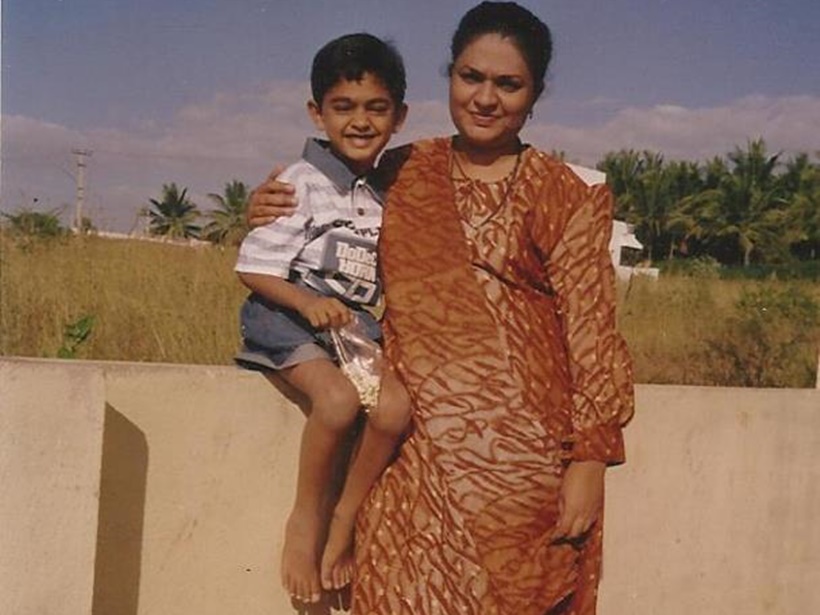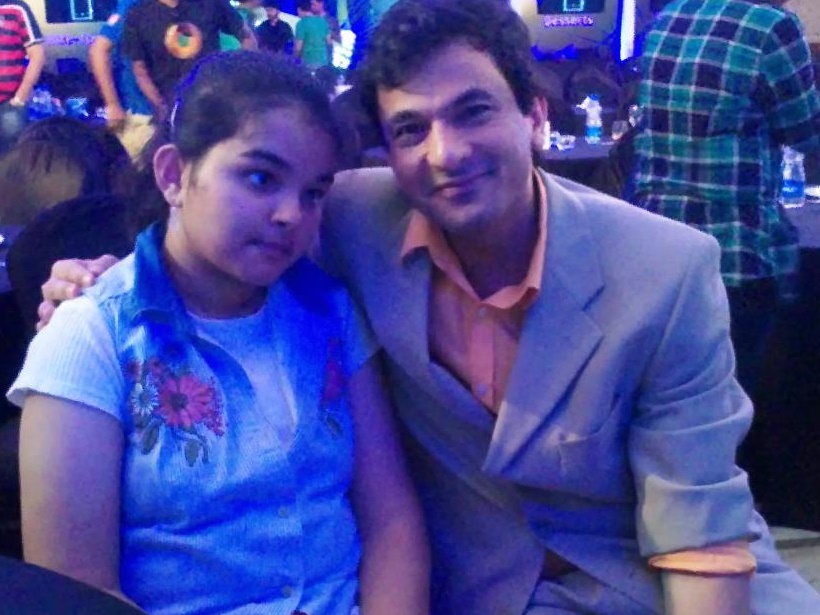Breast Cancer Awareness Month 2018: Farida Rizwan was diagnosed with breast cancer nearly 22 years ago. She spoke to Express Parenting about how she dealt with her condition.
Farida Rizwan, a 52-year-old woman from Bengaluru, has overcome enough hurdles to know life is not a bed of roses. No amount of difficulty, however, has been able to crush her spirit. Instead, she has challenged every hardship that came her way, as a breast cancer victim or a mother who brought up her children single-handedly.
Fight with breast cancer
Rizwan was a 29-year-old mother when she was diagnosed with breast cancer. “I was diagnosed with third stage invasive ductal carcinoma in April 1996, which makes it nearly 22 years of survival for me now. My lymph nodes were also affected. Considering my age, the doctors suggested mastectomy for me. My son was four and my daughter was only 11 months old. I had to undergo total mastectomy, after which I went through chemotherapy,” the mother of two told Express Parenting in a brief tete-a-tete.
For the uninitiated, invasive ductal carcinoma is the most common type of breast cancer. The cancer breaks through the wall of the milk ducts and invades the tissues of the breast.
It was while breastfeeding her daughter that Rizwan felt a lump in her breast. “Initially, I thought perhaps the milk had hardened. Over the week, I realised the lump was something different, which is when I decided to take a doctor’s opinion,” she said.

Breastfeeding during breast cancer
A 2002 study in The Lancet, which analysed nearly 150,000 women, had concluded that for every 12 months of breastfeeding, the risk of breast cancer decreased by 4.3 per cent. In Rizwan’s case, she had breastfed both her son and daughter for a long time. “I had breastfed my first child for two years and I had planned to breastfeed my second child too for that duration. And that’s why a lot of people were surprised since it is usually said that breastfeeding prevents breast cancer,” expressed Rizwan.
It was not the first time that cancer had visited Rizwan’s family. Around the same time that she was diagnosed, her sister was also suffering from cancer. “My sister was battling last stage cancer. My family members were in a chaotic state, unable to understand how to handle the situation. And I don’t blame my parents, for whom it was very difficult to deal with the tragedy, given their age. I had to take care of my family, myself and my children as well,” said Rizwan.
From being financially unsmart to becoming an entrepreneur
As a young mother to two children, Rizwan already had too much on her plate. Moreover, her daughter, a child with special needs, needed more attention, as a baby. Coupled with this was the financial crisis that came with the treatment for cancer. “The treatment can burn a hole in your pocket,” the mother said, adding she was never really “financially smart”. “I finished college, got married and depended on my husband to provide for me. But I was never an idle person. I did some odd jobs but did not earn enough,” she expressed. But this time, her husband was unavailable too. “My family was going through a financial crisis already because of my sister’s treatment. Meanwhile, my husband went to Dubai and was not available on phone or through letters. He did not keep in touch after shifting to the country. There was zero support from my husband’s family too, who did not live in Bengaluru,” she said.
The situation was “scary”, Rizwan recalls, but she did not give up. Instead of losing heart, Rizwan began looking for means to sustain herself and her children. “I started stitching soft toys and earned six rupees from each. I learned the skill very fast and gradually expanded my business. I started selling toys in buses and supplying them to various stores. All this while, I had to carry my daughter along with me since nobody was available to take care of her,” she said.
Explaining cancer to kids
With an ailing aunt and mother, and a sister who seemed “different”, things were too much too handle for Rizwan’s son. “It was a very confusing situation for a four-year-old. Finally, I had to explain to him that there’s something wrong in my breast and that it had to be removed to heal myself, in very simple terms. I also told him that I may lose my hair because I didn’t want him to go through the shock of having to look at it.”
It was Rizwan’s immense courage and determination that helped her sail through. Add to that her humorous approach to very crisis. “At first, I thought the disease was very serious. I realised breasts are not that important, they are not used for anything other than feeding a baby,” she laughed. “And that’s what I told my son. He was actually relieved that it was only the breast I was losing. Having said that, when I finally underwent mastectomy, he was emotionally disturbed. He felt there was something terribly wrong with his mother,” she said.
As far as Rizwan’s daughter was concerned, she became very cranky when her mother stopped breastfeeding her all of sudden. “Breastfeeding was her staple diet then and I didn’t get time to wean her off. The doctor warned me that my medication could impact the child’s health and had to stop breastfeeding immediately. Obviously, you cannot explain things to your 11-month-old child,” said Rizwan.

Raising a child with special needs
Being diagnosed with breast cancer also posed other physical challenges for Rizwan. With nobody present to take care of her daughter, Rizwan mostly carried her daughter everywhere she went. “There were challenges when I took my daughter out in public places, which do not have much of facilities for people with special needs. With my surgery, I somehow managed to carry her on the side other than the operated one, which became difficult,” she said.
Raising a special needs child came with its own set of challenges. “The hardest part for me was dealing with the society’s (non)acceptance of a special needs child. There were a lot of negative comments coming from people, which were hard to deal with. Initially, I had some difficulty accepting that my daughter was one with special needs. Gradually, however, I came to terms with it and tried to figure out what needed to be done. Gradually, life started getting easy with her,” expressed Rizwan.
As a mother to a special child, Rizwan realised how special children were perceived by the society. Her preschool My Giggle Garden was one of the first steps towards inspiring a change of mindset, a school that allows special needs children to play and study with regular children. “When I started sending my daughter to a special school, I realised how these children never get a chance to mingle with regular children. Again, regular children also do not really know how to deal with special children. It is precisely the lack of knowledge and interaction with special needs children that boosts prejudice. Why couldn’t children, special and regular, study together, at least in their early years? That’s how Giggle Gardens was conceived, as a school that promotes inclusive education,” Rizwan explained.
At her school, education is all about fun learning. Children here are taught beyond rote syllabus; they are allowed to explore and be creative. The school is about one-and-a-half years old. While parents resisted the idea of inclusive education initially, a lot of them are now willingly sending their children to the school. “The first year of school was quite challenging. Now parents have finally started showing faith in my initiative,” Rizwan, who has a knack for teaching, said.
Despite all difficulties, Rizwan doesn’t seem to be absorbed in self-pity even in the least. Her struggle has only made her stronger, she believes. “Once I found a way out of the situation, nothing has seemed to be scary enough for me. I can say I am fearless. If I could overcome all of that, I can overcome everything and that’s what inspires me.”
For any assistant Visit Amri Hospital Best Cancer Hospital in Kolkata

No comments:
Post a Comment